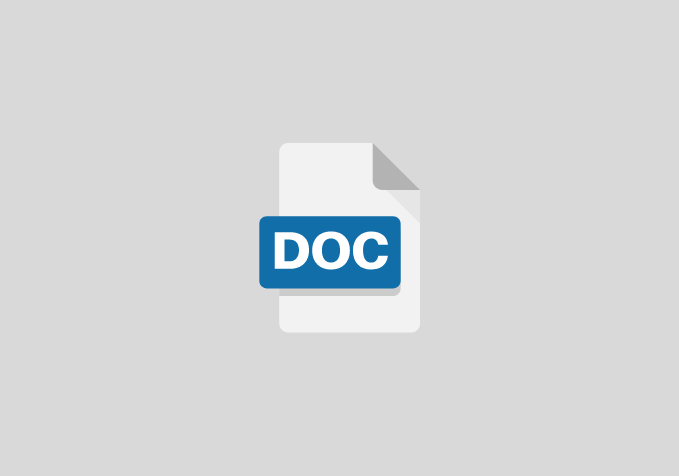A Proposal on Corruption and Underdevelopment in Nigerian Public Service. A Study of Bayelsa State
CHAPTER ONE
Objective of the study
The main objective of the study will be to find out corruption and underdevelopment in Nigeria public service. The specific objectives will be;
- To investigate the causes of corruption in Nigeria public service
- To determine the impact of corruption on the Nigerian public service
- To determine the relationship between corruption and under development
CHAPTER TWO
REVIEW OF RELATED LITERATURE
Conceptual Framework
Corruption
Corruption is a social phenomenon that is difficult to define, and it does not have a universally accepted definition. The definition varies depending on the inclination of the scholar and perception of the concept. Andrig and Fjelstad cited in Mohammed (2013) are of the opinion that corruption is a “complex and multifaceted phenomenon with multiple causes and effects, as it takes on various forms and contexts” (p. 120). Similarly, Tanzi (1998) is of the view that while it is hard to define corruption, the crisis that is linked to corruption is not difficult to identify
The United Nations Global Programme Against Corruption (GPAC) defines political corruption as the “abuse of power for private gain.” In a similar vein, TI also put forward a lucid definition of the concept as “the abuse of entrusted power for private gain.” Waziri (2010) views corruption as a pervasion or a change from the generally accepted law or rules for personal benefit
Azelama (2002) defines corruption as any action or omission enacted by a member of an organization, which is against the rules, regulations, norms, and ethics of the organization, and the purpose is to meet the selfish end of the member at the detriment of the organization. The World Bank (World Bank Independent Evaluation Group, 2006) defines corruption as “the abuse of office for private gains.” Public office is abused for private gain when an official accepts, solicits, or extorts a bribe. Agbu (2003) observes that public office can be abused for selfish gain even if bribery does not take place. This implies that political corruption could be defined in the form of patronage, election rigging, and voters register manipulation, favoritism in the award of contract, procurement scam, tribalism and nepotism in recruitment and promotion, unfair punishment/sanctions for public officials
Given the above definitions, corruption or political corruption implies any action that violates electoral rules/the formal duties of any public role, rules, or norms with regard to public trust.
CHAPTER THREE
RESEARCH DESIGN AND METHODOLOGY
The researcher used descriptive research survey design in building up this project work. The choice of this research design was considered appropriate because of its advantages of identifying attributes of a large population from a group of individuals. The design was suitable for the study as the study sought to corruption and underdevelopment in Nigerian public service
METHOD OF DATA ANALYSIS
The researcher will employ oral and direct interview in administering this research questions. Responses from the respondents were needed unlike questionnaires, which is less rewarding due to late receipt and loss of responses from respondents. The method of data analysis that will be used by the researcher is the simple percentage. More so, percentage and degrees of the responses will also be used in the analysis. Here, the ratio of those whose responses were not in the affirmative will be found and conclusions will be drawn there upon. Representations of the level of responses will be made in tabular form. The Statistical Package for Social Sciences (SPSS) software will be used to test the hypotheses.
References
- Achebe, C. (1982). The Trouble with Nigeria. Enugu, Fourth Dimension.
- Agbiboa, D. E. (2010). The corruption; underdevelopment nexus in Africa: which way Nigeria. Journal of Political and Economic Studies. Pp. 474-501.
- Aliya, N., Kalejaiyee, P., Ogunlola, A. (2014). Nigeria’s Cobweb of Corruption and the Path to Underdevelopment. An International Journal of Arts and Humanities vol. 3(3). S/No. 11 July, 2014: 102-127.
- Andre G. F. (1978). Dependent Accumulation and Underdevelopment New York: Macmillan Press.
- Audu, S. M. (2008). Emerging issues in the culture of corruption in Nigeria: Implications for National Development, in Hassan A. Saliu et al. (eds) perspective in Nationbuilding and Development: Political and Legal Issues. Lagos, Concept Publications Ltd. Pp 211-218.
- Awojobi, O. N. (2014). Corruption and Underdevelopment in Africa: A Discourse Approach. International Journal of Economics, Commerce and Management. Vol. 11, Issues (10), Oct. 2014.
- Balogun, M. J. (2003). Causative and Enabling Factors in Public Integrity: A focus on Leadership, Institutions and Character Formation, Public integrity, 5, 127-147.
- Dike, V. (2008). Corruption in Nigeria: A New Paradigm for Effective Control. African Economic Analysis (www.africaeconomicanalysis.org).
- Dimant, E. (2014). The antecedents and Effects of Corruption. A reassessment of current empirical findings. http://mpra.ub.unimuenche.de/60947.pdf
- Emmanuel, O. (2017). Governance and prebendalism in Nigeria; the past, the present and the future. https://www.researchgate.net/publication/320716437. Retrieved on 28th August, 2020.
- Iyare, T. (2008). Corruption and the Crisis of National Values in Oyoubire (ed) Governance and Politics in Nigeria, the IBB and OBJ’s years. Ibadan. Spectrum Books.


